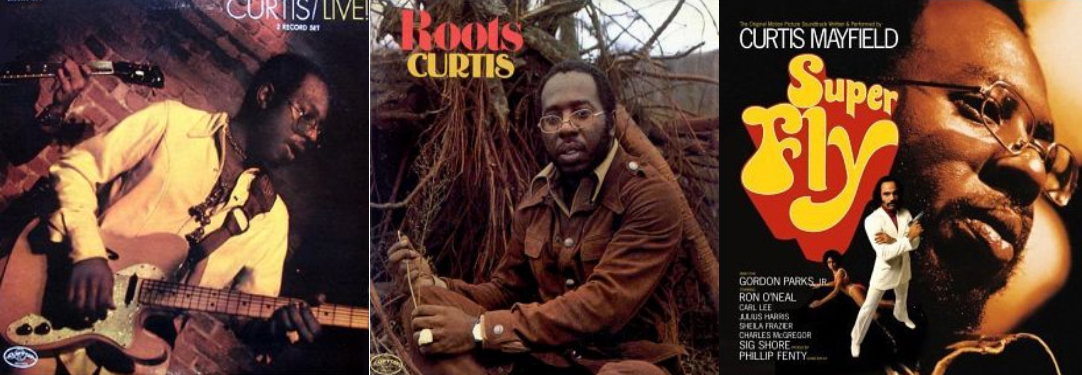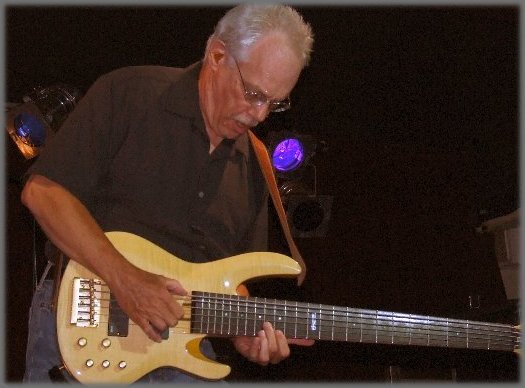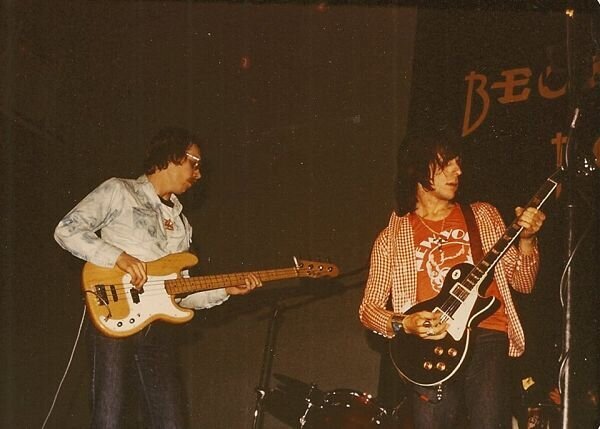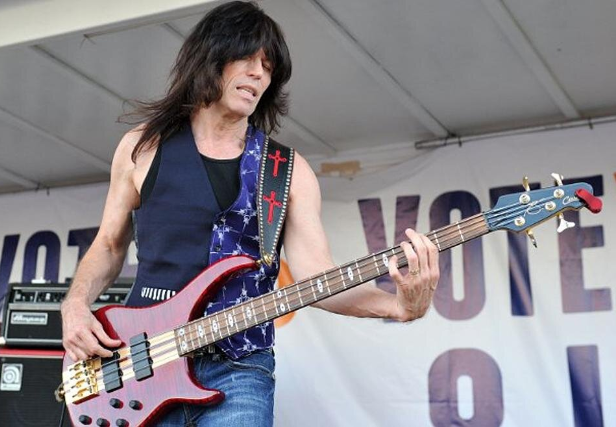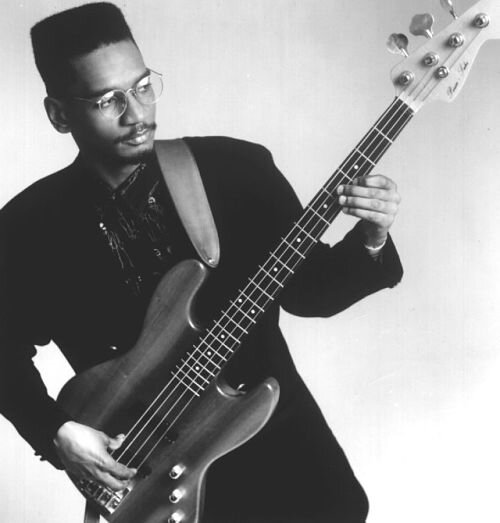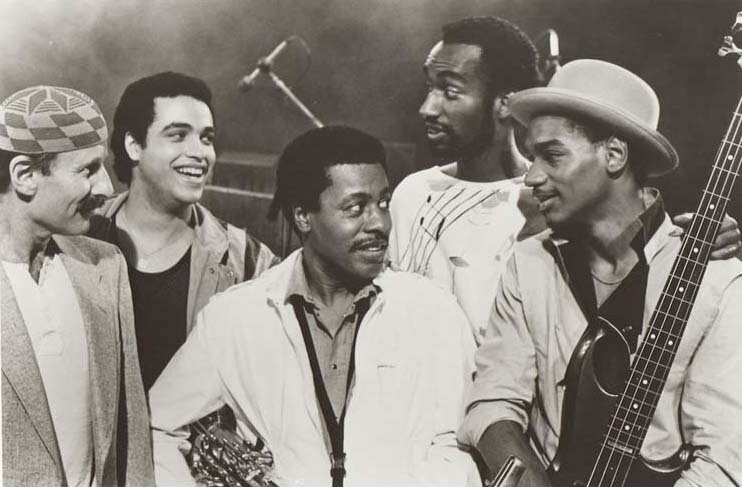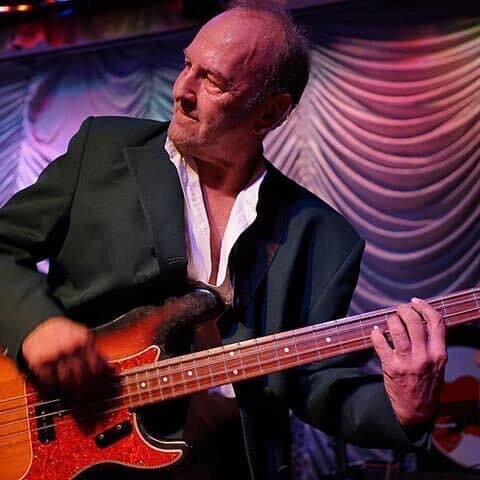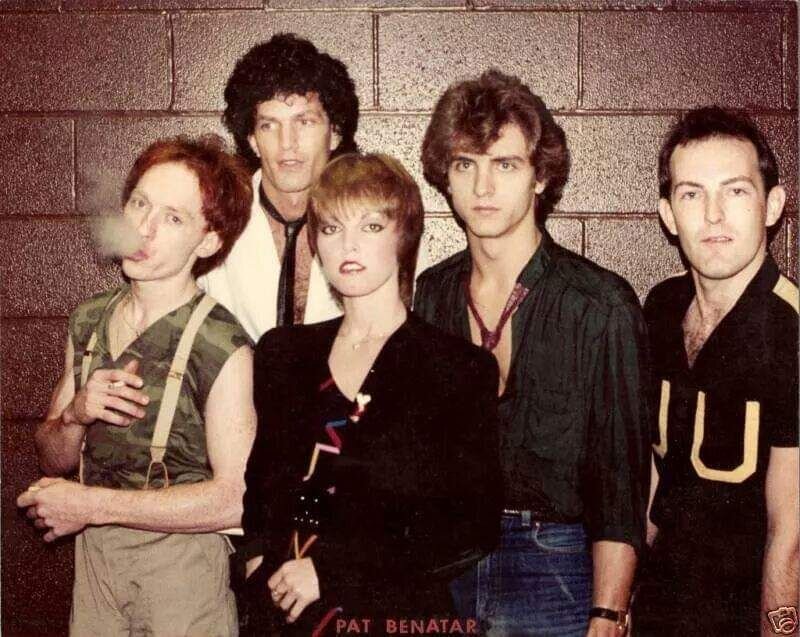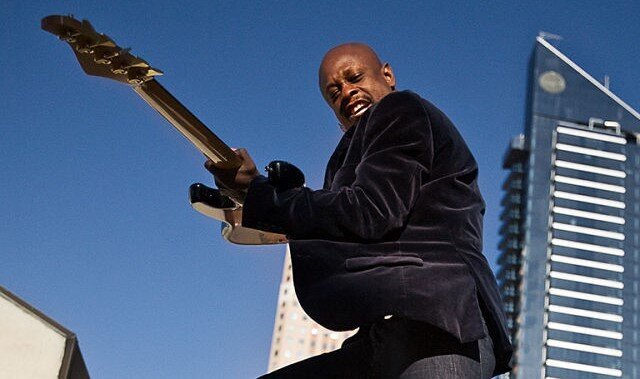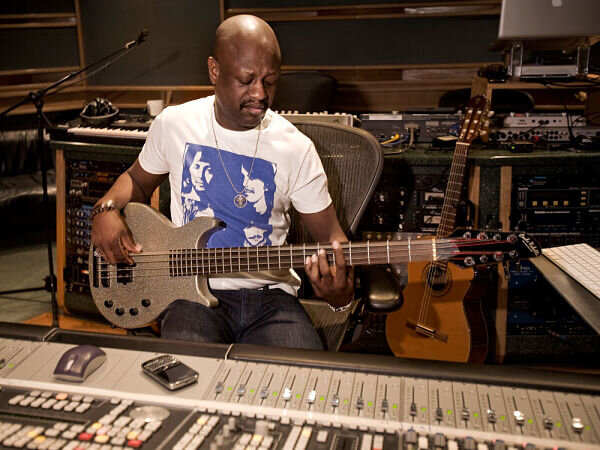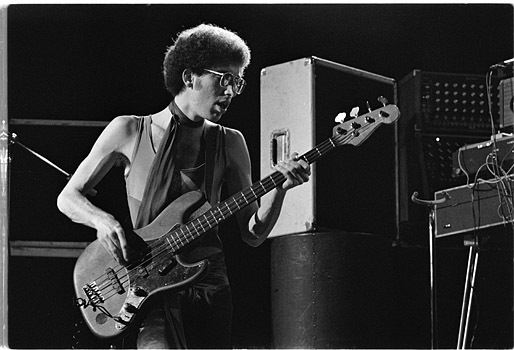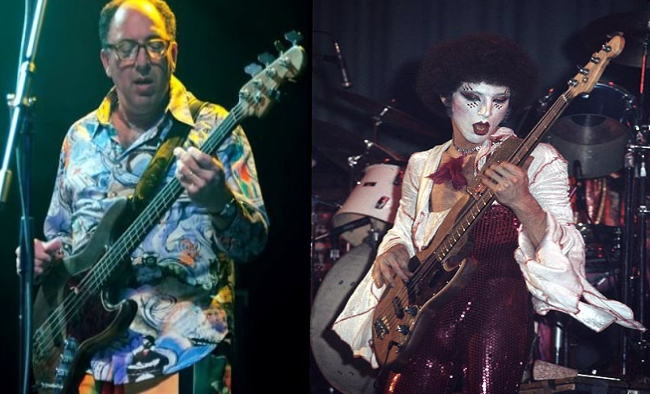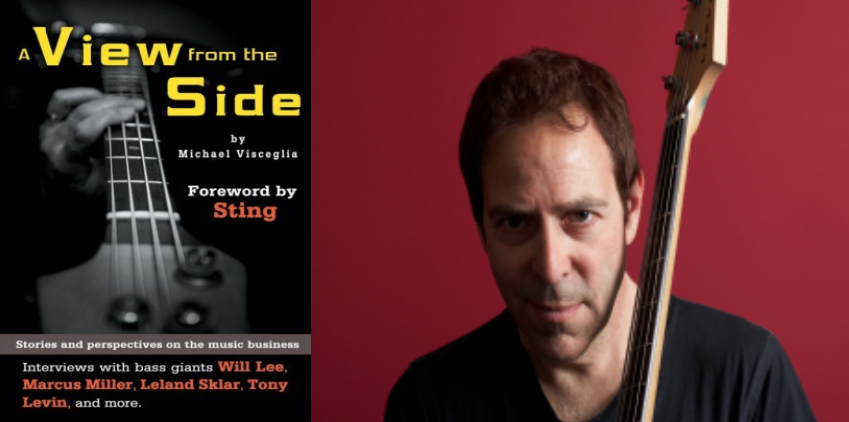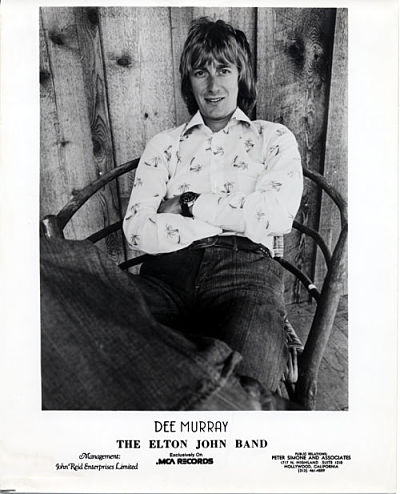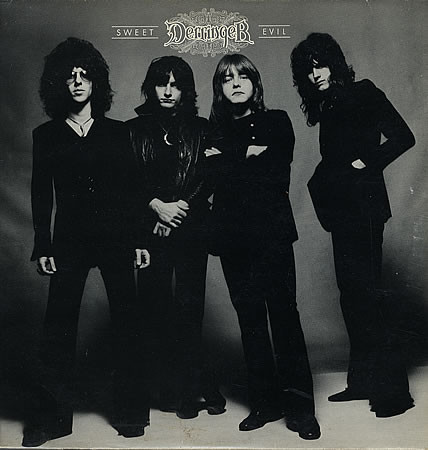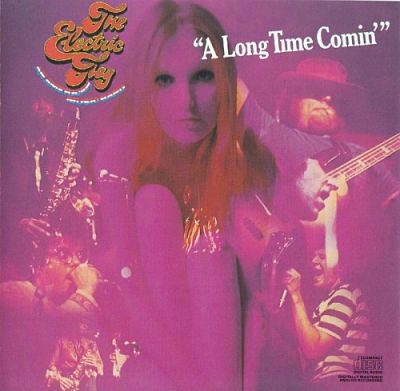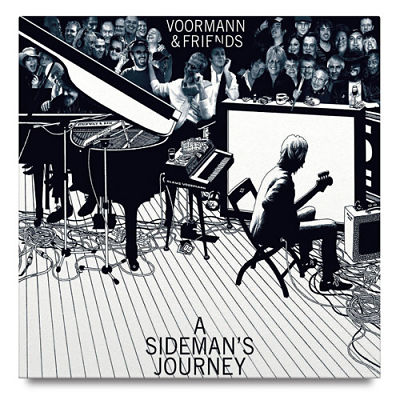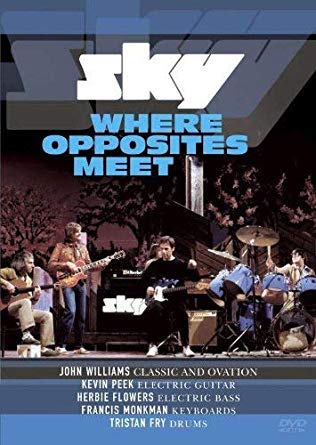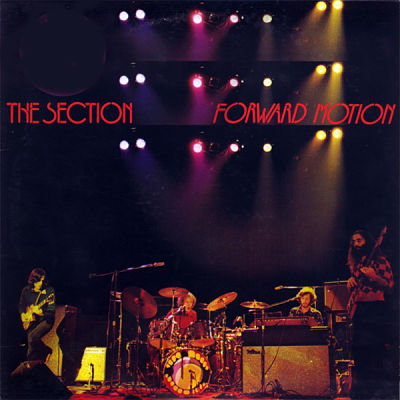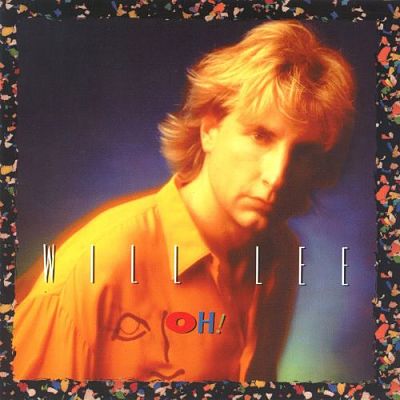Among the most prolific, versatile and accomplished bassists on stage and on record, Rodolfo Maximiliano Sarzo Lavieille Grande Ruiz Payret y Chaumont has anchored some of hard rock’s most groundbreaking and influential artists: Ozzy Osbourne, Quiet Riot, Whitesnake, Dio, Yngwie Malmsteem, Tony MacAlpine, Queensryche, and Blue Oyster Cult, to cite a select few. Rudy currently anchors the legacy edition of The Guess Who.
An author (Off The Rails / 2006), composer, clinician, educator (Rock Bass Essentials), instrument designer (Signature Peavey Cirrus Bass, Spector Signature Bass, Sawtooth Electric / Acoustic Signature Basses, among others), podcast host (The Dash Podcast) – Rudy plies his craft with a crisp tone, deft use of chords and harmonic extensions, and a proclivity to leave space in a genre oft given to over-playing! And he’s a master showman….
Incorporating signature jazz, rock, classical, and Latin motifs in his passages and solos, Rudy exemplifies the value of exploring musical formats beyond his chosen genre.
Along with Tony Franklin, Boz Burrell, Bill Wyman, Kenny Passarelli, and Jack Bruce, Rudy is among rock’s fretless bass pioneers.
As the Rock and Roll Hall Fame is making strides, albeit slowly, in citing the masters and influencers of metal and hard rock, Rudy Sarzo should be recognized for his body of work as a sideman, performer, and bandmember in the Musical Excellence category.
Tom Semioli HUFF POST “A Bass Player’s Rant – 33 Bass Players Who Belong in the Rock and Roll Hall of Fame” Rudy Sarzo: https://bit.ly/2RusuV0
Check out Rudy’s Signature Sawtooth basses: https://www.sawtoothworld.com/acoustic-electric-basses
Rudy Sarzo Sound & Vision…
Ozzy Osbourne:
“Mr. Crowley” https://youtu.be/G3LvhdFEOqs
“I Don’t Know” https://youtu.be/ra6bZuCwKy4
Quiet Riot:
“Bang Your Head” https://youtu.be/O_1ruZWJigo
“Mama Weer All Crazee Now” https://youtu.be/gStvjANqoqs
Rudy as the consummate song player in a pop rock context: Dig KYBP Adjunct Professor Tony Senatore’s rendition of Rudy’s passage on the Quiet Riot by way of Slade classic “Come On Feel The Noise” https://youtu.be/lgBMgpf7NXo
Whitesnake:
“Still of the Night” https://youtu.be/9VOvlHUWfs4
“Is This Love” https://youtu.be/W6YypskaWvA
Project Driver: “I Can See It In Your Eyes” https://youtu.be/lIlswNoPnIg
KYBP Adjunct Professor Tony Senatore’s rendition from Rudy’s Project Driver “Nations On Fire” https://youtu.be/y6JS3VNEsXc
Manic Eden: “Can You Feel It” https://youtu.be/5s-Anco9jmM
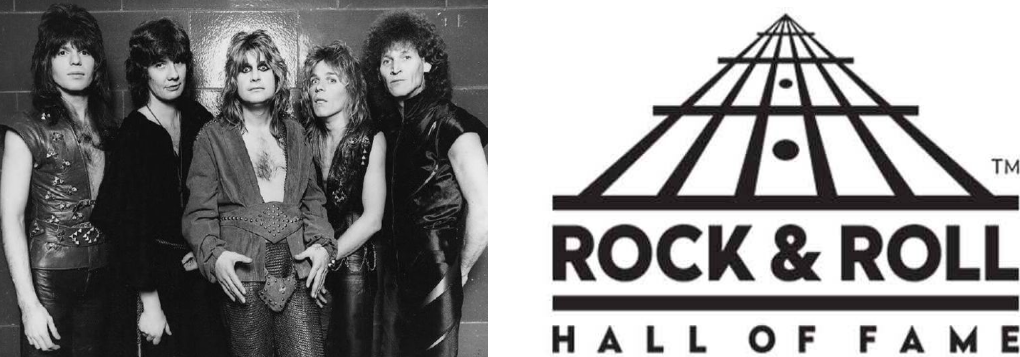
KYBP ZOOM ZESSIONS / THE BASS GUITAR CHANNEL RADIO SHOW
KNOW YOUR BASS PLAYER / THE BASS GUITAR CHANNEL RADIO SHOW: “I look forward to beautiful uncertainties, everything I have succeeded with comes from the unknown…” A behind-the-scenes vignette from a mesmeric conversation with RUDY SARZO by host David C. Gross and Know Your Bass Player “honcho” Tom Semioli. Rudy reflects on the Rock Hall of Fame, his induction into the Miami-Dade College Hall of Fame, motivations in life, Randy Rhoads’ love of teaching, and his future aspirations. The Bass Guitar Channel Radio Show airs on Cygnus Radio.
KNOW YOUR BASS PLAYER / THE BASS GUITAR CHANNEL RADIO SHOW: “Your bass doesn’t have any bloody frets!” In this behind-the-scenes clip with host David C. Gross and Know Your Bass Player “honcho” Tom Semioli, Rudy Sarzo discusses his Cuban rhythmic roots, his ’59 Fender Precision and “Frankenstein” ’67 Fender Jazz, Pino Palladino’s passive bass resurgence, and the time when Ozzy Osbourne realized that Rudy’s instrument was devoid of metal strips on the fretboard! The Bass Guitar Channel Radio Show airs on Cygnus Radio.
KNOW YOUR BASS PLAYER / THE BASS GUITAR CHANNEL RADIO SHOW: In the first in a series of six unedited interview clips from a 2021 broadcast of The Bass Guitar Channel Radio Show on Cygnus Radio, Rudy Sarzo talks about his Cuban musical and cultural roots, his ’59 Fender Precision and ’67 Jazz basses; David displays his fretless six-string, and Ozzy bellows “you don’t have any frets on that bloody bass!’ among other topics! With host David C. Gross and Know Your Bass Player “honcho” Tom Semioli.
KNOW YOUR BASS PLAYER / THE BASS GUITAR CHANNEL RADIO SHOW: In the second in a series of six unedited interview clips from a 2021 broadcast of The Bass Guitar Channel Radio Show on Cygnus Radio, Rudy Sarzo talks about his signature Sawtooth electric and acoustic bass, the instruments he’s used over the years, amplification, and playing the Miami club scene. With host David C. Gross and Know Your Bass Player “honcho” Tom Semioli.
KNOW YOUR BASS PLAYER / THE BASS GUITAR CHANNEL RADIO SHOW: In the third in a series of six unedited interview clips from a 2021 broadcast of The Bass Guitar Channel Radio Show on Cygnus Radio, with Rudy Sarzo, our discussion covers such topics as: music education, the homogenization of arts and culture, Rudy’s media studies at Miami-Dade and his work in digital platforms, his work as a podcast host, and reflections on Randy Rhoads, among other topics. With host David C. Gross and Know Your Bass Player “honcho” Tom Semioli.
KNOW YOUR BASS PLAYER / THE BASS GUITAR CHANNEL RADIO SHOW: In the fourth in a series of six unedited interview clips from a 2021 broadcast of The Bass Guitar Channel Radio Show on Cygnus Radio, Rudy Sarzo talks about his early family life and emigration from Cuba; musical influences spanning The Beatles, Jimi Hendrix, and Led Zeppelin, touring with Ozzy, and Whitesnake, among other topics. With host David C. Gross and Know Your Bass Player “honcho” Tom Semioli.
KNOW YOUR BASS PLAYER / THE BASS GUITAR CHANNEL RADIO SHOW: In the fourth in a series of five unedited interview clips from a 2021 broadcast of The Bass Guitar Channel Radio Show on Cygnus Radio, Rudy Sarzo reflects on the record industry: then and now, his podcast, working with Blue Oyster Cult on his mid-show bass solo, surviving the loss of Randy Rhoads, and the perils of fame and fortune, among other topics. With host David C. Gross and Know Your Bass Player “honcho” Tom Semioli.
KNOW YOUR BASS PLAYER / THE BASS GUITAR CHANNEL RADIO SHOW: In the sixth and final episode in a series of six unedited interview clips from a 2021 broadcast of The Bass Guitar Channel Radio Show on Cygnus Radio, Rudy Sarzo ruminates o’er such topics as the “hair band era” (notes David “spandex is the most forgiving of fabrics!”), the balance of musicianship and showmanship, Whitesnake, Manic Eden, his induction into the Miami-Dade College Hall of Fame, among other subjects. With host David C. Gross and Know Your Bass Player “honcho” Tom Semioli.
